June 9, 2025 | 12:21 GMT +7
June 9, 2025 | 12:21 GMT +7
Hotline: 0913.378.918
June 9, 2025 | 12:21 GMT +7
Hotline: 0913.378.918
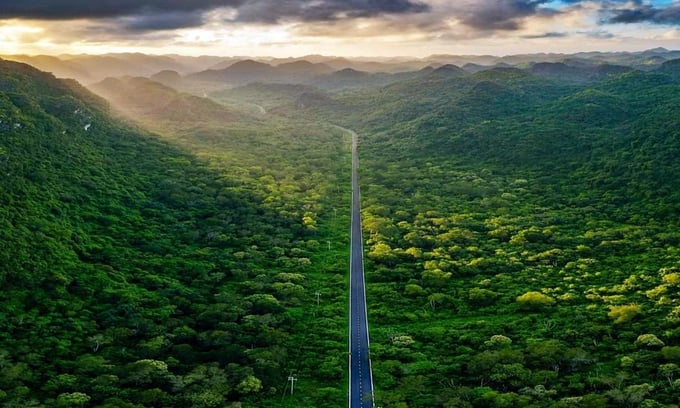
Sunset over the world biosphere reserve. Photo: Do Ba Hung.
Started in 2019, the project "Mainstreaming Natural Resource Management and Biodiversity Conservation Goals into Socio-Economic Development Planning and Biosphere Reserve Management in Vietnam" (BR Project) has been implemented in three World Biosphere Reserves: Tay Nghe An, Cu Lao Cham - Hoi An, and Dong Nai.
Biosphere Reserves, a concept first proposed by UNESCO in 1971, were established to recognize and protect areas of exceptional natural and cultural value. These areas are seen as "living laboratories" for sustainable development, where innovative management approaches are tested to balance the relationship between ecosystems and human socio-economic activities. The aim is to promote a harmonious coexistence between people and nature.
After 5 years of implementation, the project has significantly contributed to the effective management of nearly 2.1 million hectares across the three biosphere reserves, helping to restore and sustainably manage more than 4.000 hectares of degraded forest, while also ensuring the protection and sustainable use of resources across 62.940 hectares of high-conservation-value areas.
In addition, nearly 2.900 households, with 40% of the beneficiaries being women, have seen their incomes increase by at least 20% through various activities such as ecotourism, the cultivation of medicinal plants, and environmentally friendly livestock farming. More than 4.200 individuals, 43% of whom are women, have been provided with training on conservation and natural resource management.
The project has also made significant strides in promoting the integration of biodiversity impact assessments into environmental impact evaluations at the three biosphere reserves. Approximately 62.5% of tourism establishments have earned certification as biodiversity-friendly businesses.
These results serve as clear evidence of Vietnam's commitment and determination to meet the global targets outlined in the Kunming-Montreal Global Biodiversity Framework (GBF) by 2030.
Mr. Nguyen Van Tai, Director General of the Department of Nature Conservation and Biodiversity (Ministry of Natural Resources and Environment) and Deputy Head of the BR Project Steering Committee, noted: "The BR Project has successfully strengthened the roles and functions of biosphere reserves, despite the ongoing challenges posed by industrialization, modernization and socio-economic development. Moreover, it has helped to mitigate the devastating impacts of climate change, which is becoming an increasingly urgent global issue".
Mr. Patrick Haverman, the Deputy Resident Representative of UNDP in Vietnam (the organization that collaborated with the Ministry of Natural Resources and Environment on the BR Project), expressed his agreement and added: "It is essential that we place people at the heart of every conservation effort. By empowering local communities and promoting sustainable livelihoods, I believe we can create a future in which both people and nature coexist harmoniously".
Building upon the achievements of the BR Project, UNDP remains committed to advancing the balanced relationship between humans and the environment, especially through initiatives such as promoting wildlife conservation and responsible nature-based tourism for sustainable development in Vietnam, as well as supporting sustainable forest and land management within the Ba River Basin landscape.
Representatives from UNDP are confident that these continued efforts will further strengthen Vietnam's role in fulfilling its international and domestic commitments to biodiversity conservation and natural resource management.
Funded by the Global Environment Facility (GEF), the BR Project has a total budget exceeding 6.6 million USD and consists of three major components. At the national level, the project has been instrumental in supporting the revision of the Biodiversity Law and helping management agencies develop strategies for the expansion and development of biosphere reserves across Vietnam. At the provincial level, the project has focused on integrating biodiversity conservation into local planning processes.
By the end of 2024, the BR Project will hold final reviews in the relevant provinces and regions. On January 17th, UNDP and the Ministry of Natural Resources and Environment will organize the national-level project closure event.
Translated by Phuong Linh
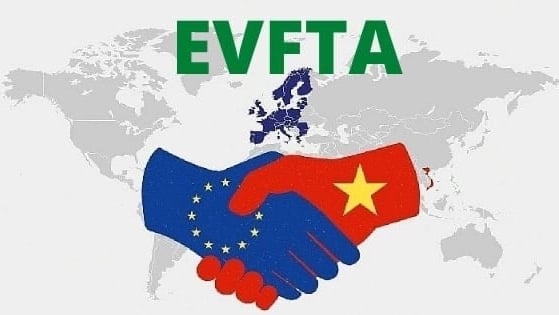
(VAN) The benefits brought by the EVFTA are particularly significant, as the EU has consistently been one of Vietnam's four largest export markets for agricultural, forestry, and fishery products.
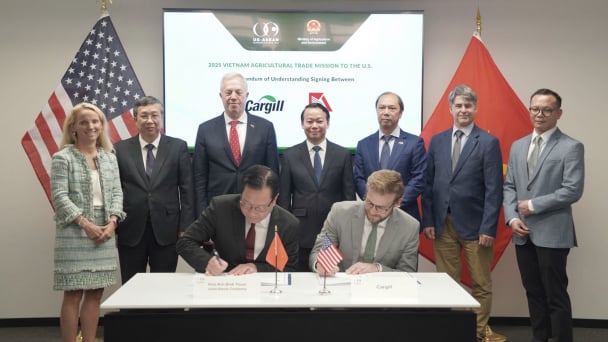
(VAN) Vietnam agribusinesses accompanying Minister Do Duc Duy signed agreements worth $1.1 billion, raising the total number of MOUs during the trip to 20, with a combined value approaching $3 billion.
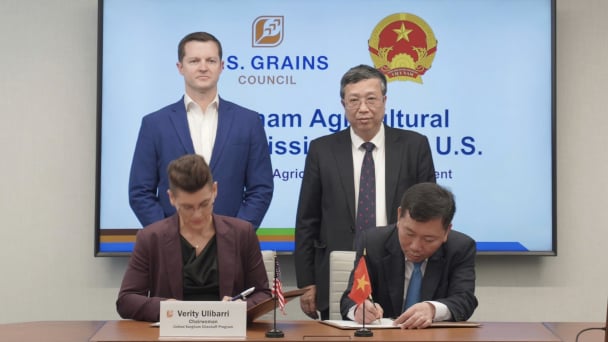
(VAN) The U.S. Grains Council signed a 5-year cooperation agreement with the Partnership for Sustainable Agriculture in Vietnam (PSAV) during MAE's agricultural trade mission.
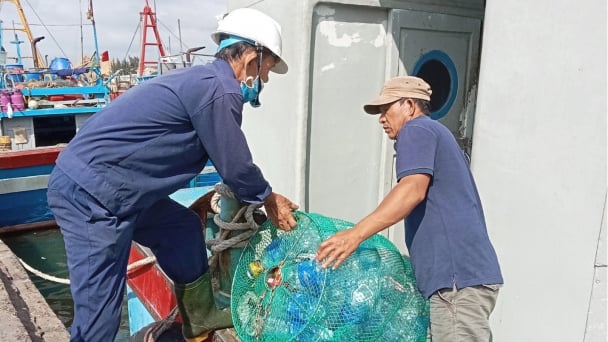
(VAN) Vietnam Agriculture and Nature News interviewed Mr. Vu Thai Truong, Acting Head of Climate Change and Environment at UNDP Vietnam on the occasion of World Environment Day (June 5).
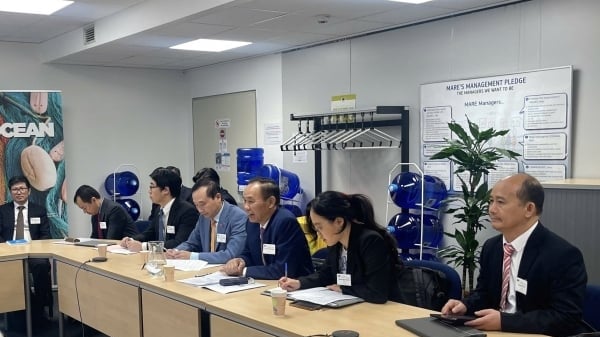
(VAN) On June 5, Deputy Minister of Agriculture and Environment Phung Duc Tien held a working session with the Directorate-General for Maritime Affairs and Fisheries of the European Commission (DG MARE).
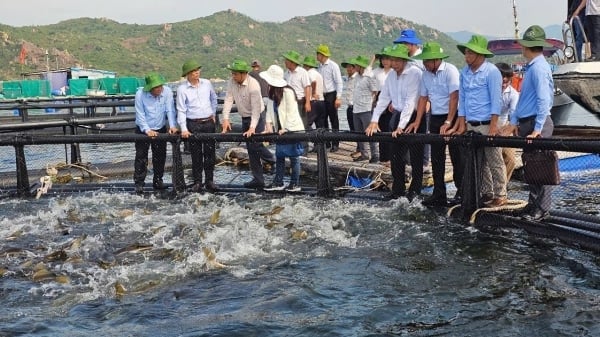
(VAN) According to Prof. Dr. Mai Trong Nhuan, former Director of Vietnam National University, Hanoi, the national ocean spatial plan is devised to guide the ocean economy toward achieving its key objectives.
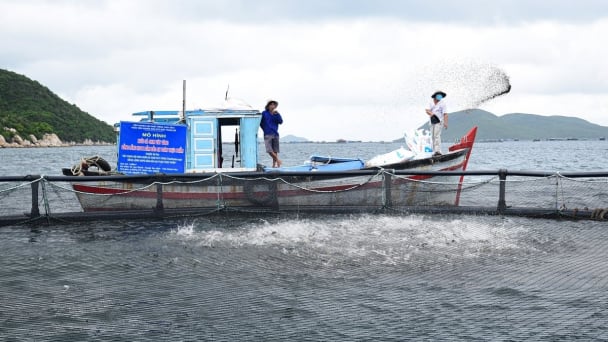
(VAN) Vietnam’s aquatic resources decreased from over 5 million tons in the period 2000-2005 to just over 3.9 million tons in the period 2016-2020.